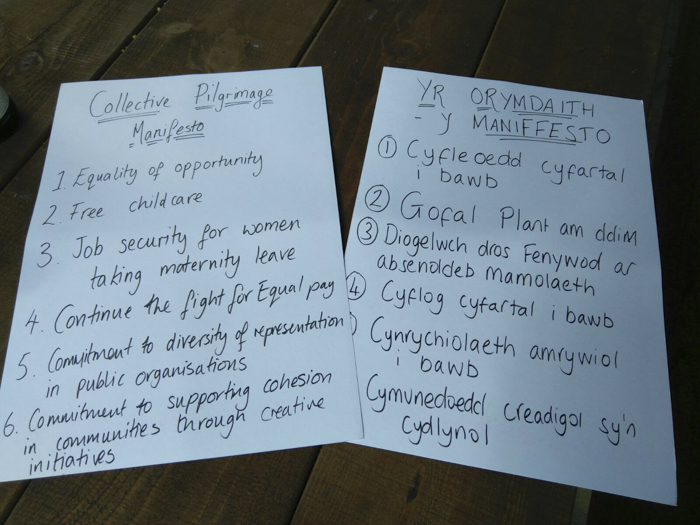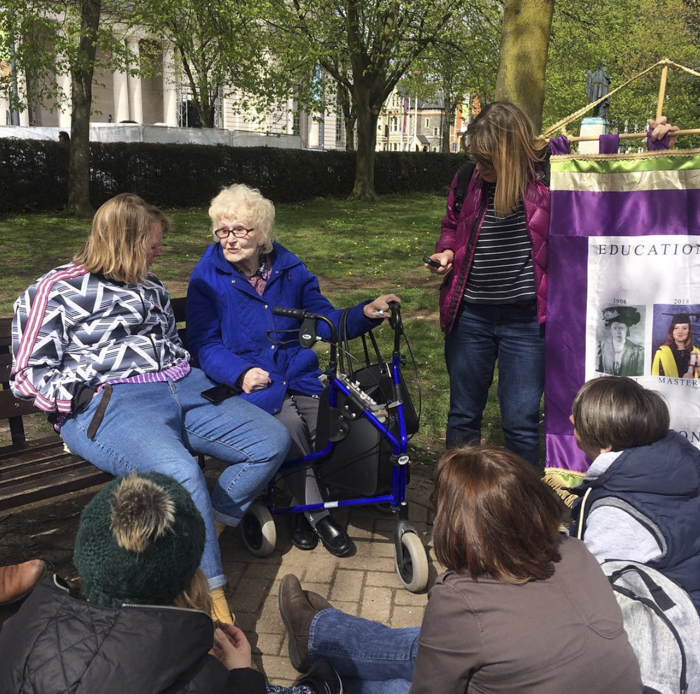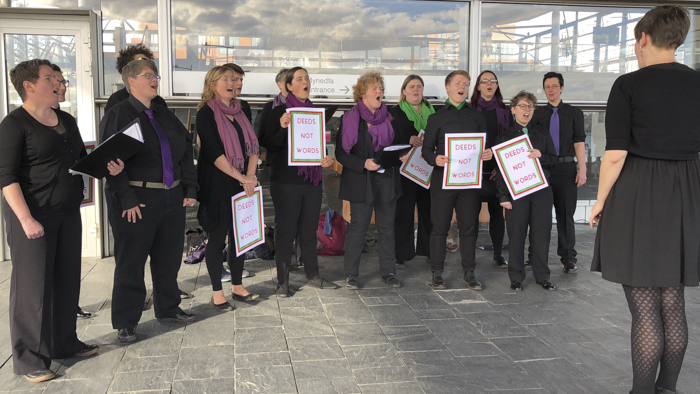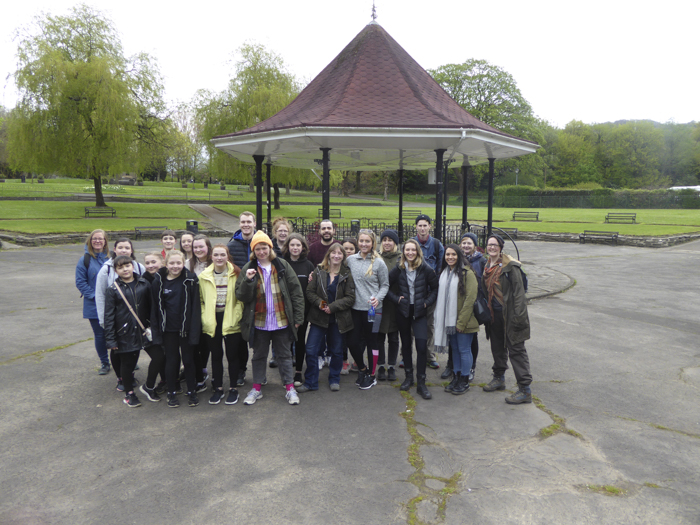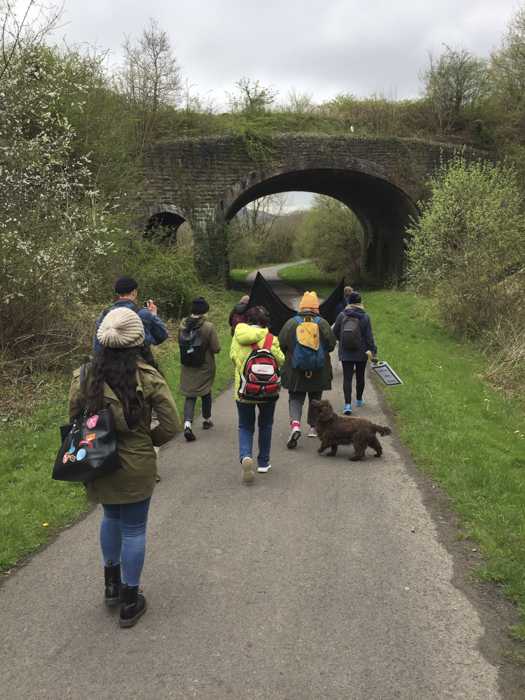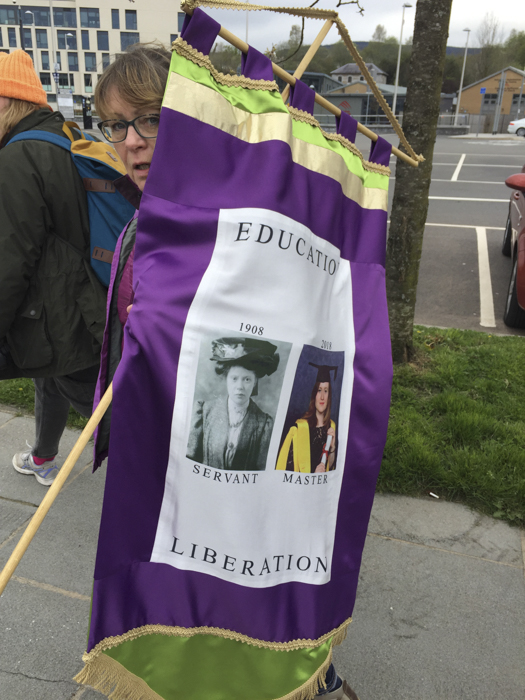The March – A Collective Pilgrimage
In April 2018, students and staff from Swansea College of Art Photography Department marched from Merthyr Tydfil to the Senedd in Cardiff to raise awareness of equality and women’s rights and to mark the 100 anniversary since certain women gained the vote. We wanted this collaborative active to bring people together and prompt conversation around equality and women’s rights. The route was re-imagining of a march conducted by a group of Welsh Suffragettes in 1913 re-tracing part of the original route.
Our pilgrimage will began in Merthyr Tydfil, an iconic location in terms of the industrial history of Wales, its impact on socioeconomical and patriarchal structures within the region. The route continued along the Taff Trail to Pontypridd following the original route of the mining production down the valleys into the Cardiff docklands which is now in post-industrial Wales the home of Welsh government in the Senedd buildings.
Along the way we were be joined by local community groups such as Theatr Soar, The RedHouse, The Songbirds, Muni Art Centre, Women Against Pit Closures, Poets of the Hill, Afon Community Dance, Jazz Heritage Wales and others.
Together with artists, writers, campaigners, academics and local historians, we connected with people and communities en route and collated a manifesto which we presented to AM Julie James at the Senedd and are joined by The Songbirds Choir an LBTQA+ women’s voice choir. As the manifesto was presented they sang traditional welsh hymens at the Senedd with altered arrangements of the music to suit women’s vocals.
Part of the motivation behind the project was to highlight the importance of making connections and having discussions within the wider community outside the academic institution on subjects of equality. To prompt discussion on issues of inequality in our society and the importance of anti-essentialist thinking when discussing individuals or groups of people. We wanted to highlight women’s the struggle for universal equality is also affected by wider issues of inequalities such as social class, ethnicity and sexuality. We wanted to highlight the importance of listening to a wider range of voices in the community, form different ages, social and ethnic backgrounds, and to try to understand the nuances and difficulties involved when speaking for others.
On the second day in Cardiff we met up with Violet John, founding member of Women Against the Pit Closure. We listened to her account of how she experienced being a woman involved with protest movements, this was a moving experience listening first hand to an oral history of someone who had being protecting people’s rights since the sixties.
After talking with Violet in Alexandra Gardens, we followed the original route through Cardiff the suffragist took on their way to London. As we did so I talked to the students about The Working Women’s Charter of 1974. We discuss the 10 demands of the charter and which ones we thought have been achieved, and if they hadn’t then why not. We then started to piece together are own Manifesto our demand s where:
• Equality of opportunity
• Free childcare
• Job security for women taking maternity leave
• Continue the fight free equal pay
• Commitment to diversity of representation in public organisations
• Commitment to supporting cohesion in communities through creative initiatives
The event was captured on photography and film with the end results displayed at the Mission Gallery in Swansea 7th May to 8th June 2018.



